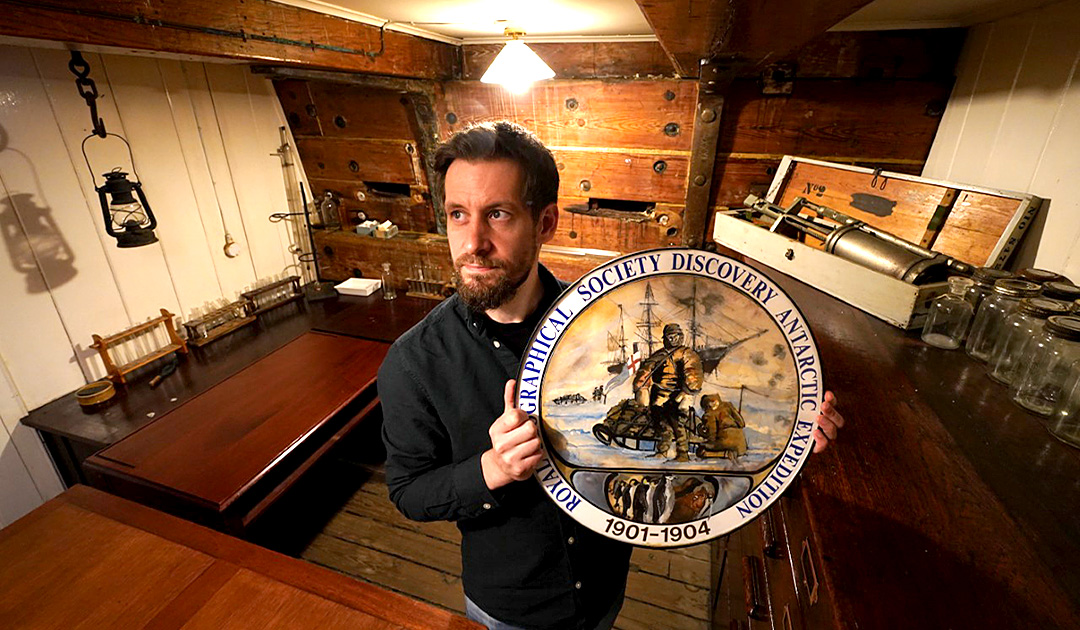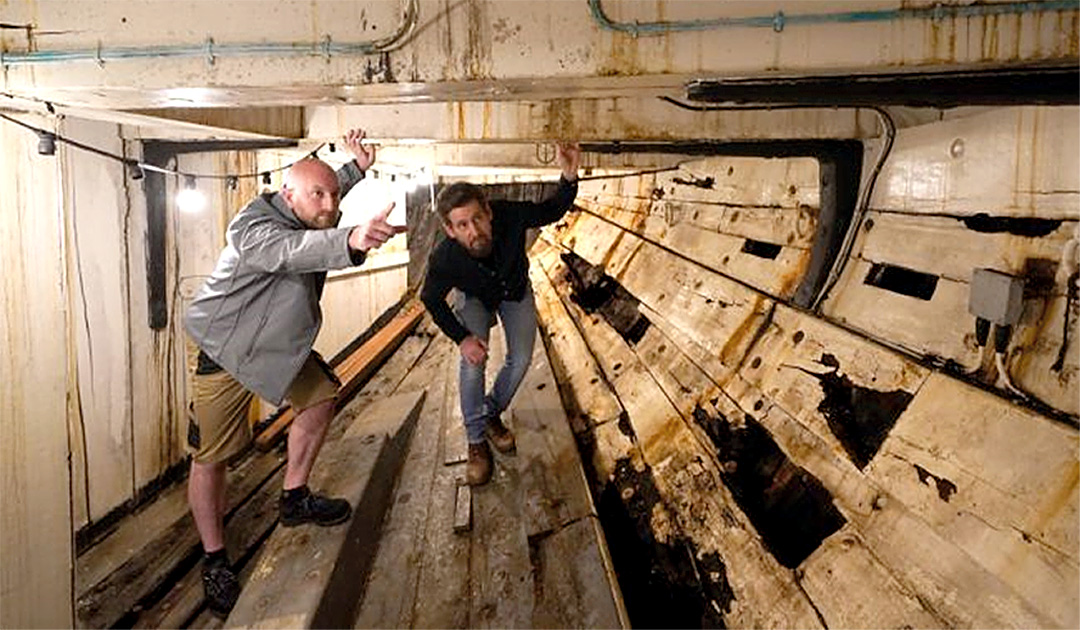
The RRS Discovery was the world’s first ship designed specifically for scientific research and conducted the first explorations in Antarctica under the renowned navigator and explorer Captain Robert Falcon Scott. In the meantime, the ship is now a museum ship at Discovery Point in Dundee, Scotland. Here the RRS Discovery was launched on March 21, 1901.
The Maritime Trust took over the RRS Discovery in 1979 and eventually saved her from being scrapped. After a £500,000 restoration, she was transferred back to her keel site in Dundee and lies there for viewing in combination with a land exhibition about the original Antarctic expedition.

However, time continued to gnaw away at the 3-Mast ship, so that further maintenance work was required. The National Heritage Memorial Fund has donated £409,000 to the operator of Discovery Point Museum to enable much needed repairs to be carried out on the RRS Discovery.
To prevent future damage, the Trust commissioned specialist contractors to carry out the repairs. The work was estimated to cost £1.3 million.
The funding covers the first phase, including repairing timbers, upgrading stanchions to prevent rainwater from entering the hull and ensuring the vessel is watertight.
Initial repairs are expected to be carried out within the next 12 months and the vessel will remain open to the public throughout.

Dr Simon Cook, Senior Lecturer in Environmental Change at the University of Dundee, said both the data and samples collected by Scott’s expedition more than 100 years ago provide valuable long-term context for modern climate science.
It should also be noted that the observations and mapping of sea ice by Discovery, long before the advent of satellite imagery, in combination with logs from other expeditions, represents a record series that can be compared to that of today.
Dr. Cook said, “This forms a window for us back to a time over 100 years ago. This is where the real value is, there’s just the long-term context.”

Ali Gallatly, operations manager at Dundee Heritage Trust, thanked the fund for the money and said: ‘We couldn’t do this without this generous funding. We would see the ship continue in a wrong direction without support. This funding will allow RRS Discovery to be here for generations to come.”
Gallatly added: “We continue to seek support and funding from people around the world. The ship is unique – it’s the only one of its kind in the world built specifically for research in the polar regions, and we need to preserve that.”
Heiner Kubny, PolarJournal





